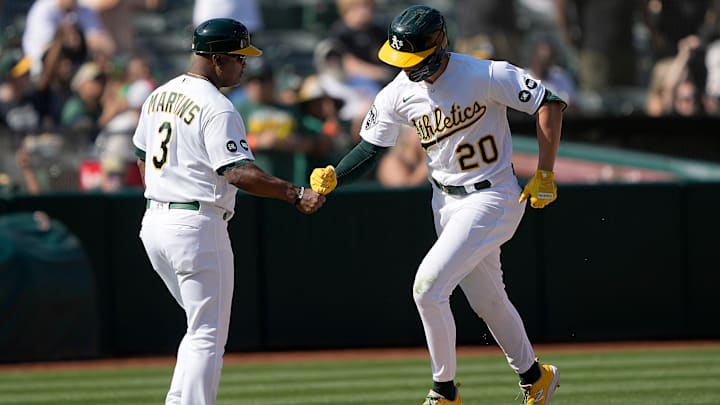It is well known through out baseball that San Diego went all in on buying a World Series victory this year. They out LA'd LA. They made every effort to find the best free agents and trade partners they could and assemble - on paper - what should have been of the best teams in the National League, is not NL West.
Obviously that did not work out well. In fact you could argue that the Padres have accomplished as much as the A's have. Nothing. Are they on the verge of being re-located? No. Are they ripping apart their team and rebuilding for next year. No. Are they going to the playoffs? No. The last one is really the only question that matters here. With a payroll to come close to $300,000,000 (counting MLB taxes), you would expect there to be a race to the end of the season, rather than a race TO end the season.
But baseball is a funny thing, it does not care about your feelings, (no crying allowed) it does not care about what you want, it only cares about what you do. Unlike most team sports, baseball is a singular game. A batter, a pitcher, a fielder. Each individual person must do their job, or else it hurts the team. And San Diego is clearly making a case for just this argument. The New York Mets are making a run at it but unlike the Mets, the Padres did not give up on their season at the trade tradeline. Rather they kept trying to solve the "everything is a nail" puzzle and used the same hammer.
Last night, the Padres did what they did last night, beat Oakland. That may or may not happen today, but who knows? The larger point to be made here is, does the buying all the players you can solve anything? Not really. Moneyball still matters but not in the way it used to.
Taking the mound last night for Oakland is Mason Miller. The young right hander who topped out at 102.4 mph. Likewise for San Diego, Matt Waldron. Each pitcher had equal opportunity to do their job; keep the other team from scoring. But the Padres have not been able to do that as of late, even though they are rank #5 in team ERA stats. They spent all they could and they are coming in behind Tampa Bay. Tampa Bay. Think about that for a moment.
But while you are pondering that, remember there is a right way and wrong way to play 'moneyball'. Come to think of it the definition of moneyball has changed over the years. It used to be something reserved for small market teams trying to find an edge and in doing so they started pulling apart numbers that really had never really matted before. But when they opened that box, everyone pilled in. Including the 2004 Red Sox.
This created a new value for players that was not traditional known. Players before that would have only barely seen a couple million were being offered $10M contracts and up, per year. Those that had high OBP's and wAR's were creating a new product. A new type of player. And this caused the price for those players to increase. So really we just ended up right where we started. High value players getting paid high value contracts. But if we are able to pull apart these numbers how does this explain teams with the highest payroll (5 out of the top ten) are totally out of the playoff picture. The team with the #1 payroll threw in the towel on the season half way though it (NY Mets).
The truth is that they are not playing Moneyball the way that Oakland or for that matter Bill James meant for it to be played. High OBP with high SLG and that should just about get you where you need to be. But it is the way you assemble those parts of a team of individuals that matters. The Angel blew their stack on mostly two players (Trout and Shohei) and both of those players are currently packing their bags, presumably.
The way Moneyball is supposed to be played is not focusing solely on the individual box score but how that box score fits into others individual box score. How one compliments the other. How those parts fit together. One reinforcing the other.
Right now, MLB teams find themselves to be right back to where they started before Moneyball. Throwing money at the problem but saying it is money well spent because we do "stats" now. Eh, not really. Stats are one thing but the application of those statistics still matters. Remember Moneyball was meant to be played by poor teams looking for an edge not rich teams trying to buy 'the edge'. Can they still do that, sure but statistics show that 50% of the top tens teams who try, still lose. So even after over a quarter of a billion dollars, you are back to flipping a coin. Assemblage of the parts still matter to the whole. And those teams that have spent a lot and are going to playoffs still understand this. And if you do not believe me the bottom ten teams of payroll are sending an equal number of teams to the playoffs as the top 10.
So does Moneyball still matter; yes but only if you playing it the right way.
